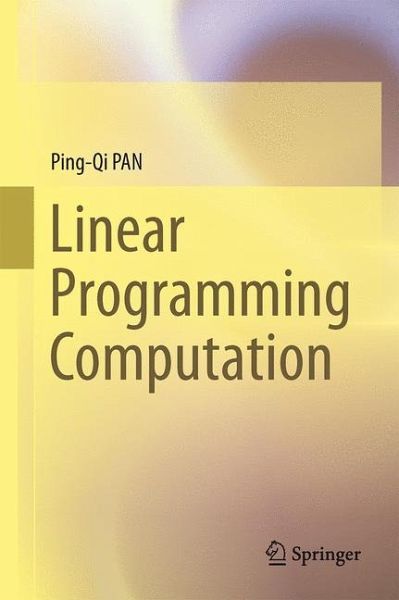
Linear Programming Computation (eBook, PDF)
Versandkostenfrei!
Sofort per Download lieferbar
104,95 €
inkl. MwSt.
Weitere Ausgaben:

PAYBACK Punkte
52 °P sammeln!
With emphasis on computation, this book is a real breakthrough in the field of LP. In addition to conventional topics, such as the simplex method, duality, and interior-point methods, all deduced in a fresh and clear manner, it introduces the state of the art by highlighting brand-new and advanced results, including efficient pivot rules, Phase-I approaches, reduced simplex methods, deficient-basis methods, face methods, and pivotal interior-point methods. In particular, it covers the determination of the optimal solution set, feasible-point simplex method, decomposition principle for solving ...
With emphasis on computation, this book is a real breakthrough in the field of LP. In addition to conventional topics, such as the simplex method, duality, and interior-point methods, all deduced in a fresh and clear manner, it introduces the state of the art by highlighting brand-new and advanced results, including efficient pivot rules, Phase-I approaches, reduced simplex methods, deficient-basis methods, face methods, and pivotal interior-point methods. In particular, it covers the determination of the optimal solution set, feasible-point simplex method, decomposition principle for solving large-scale problems, controlled-branch method based on generalized reduced simplex framework for solving integer LP problems.
Dieser Download kann aus rechtlichen Gründen nur mit Rechnungsadresse in A, B, BG, CY, CZ, D, DK, EW, E, FIN, F, GR, HR, H, IRL, I, LT, L, LR, M, NL, PL, P, R, S, SLO, SK ausgeliefert werden.












